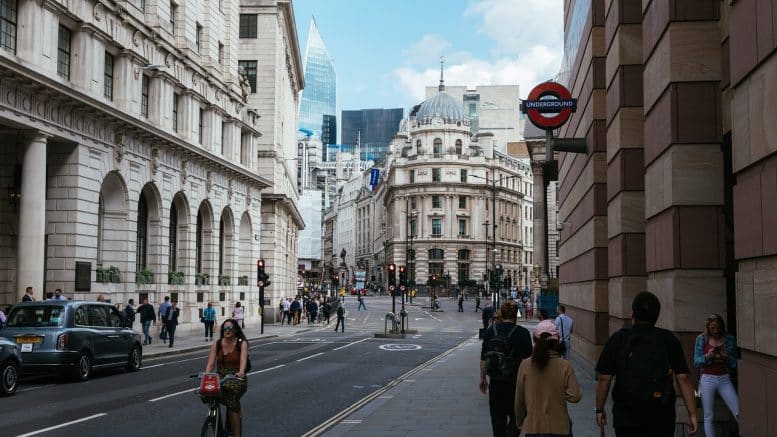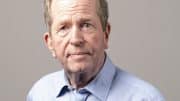As predicted late yesterday, the Bank of England has left its interest rate unchanged at 5.25%, following better-than-expected inflation figures.
Its monetary policy committee voted narrowly 5-4 to leave the cost of borrowing unchanged. Until yesterdays ONS report, markets had widely assumed would see a rise of a further quarter percentage point – what would have been the 15th in a row.
Reaction was swift. Louis Coke, Senior Investment Manager at Charles Stanley said the decision would leave business owners breathing a sigh of relief today, with the peak in UK interest rates potentially in sight.
“This will likely bring some calm particularly to those who are looking to either raise expansion capital from investors, or who are looking to sell their business. In fact, more than a quarter of business owners admitted they’ve had to delay selling their business due to high interest rates.”
With a slight easing of financial pressures, lenders now need to ensure that SMEs can be supported by engaging in open conversations, discussing tangible solutions, and offering accessible rates
She said the decision was “likely driven in some part by the UK inflation figures released yesterday” adding: “These showed that inflation is coming off of the highs and some of the areas that were recording significant price increases such as hospitality and travel are beginning to slow.”
Adam Zoucha, MD EMEA of FloQast, said the Bank “holding rates steady” has left organisations asking if this signals the end of interest rate rises.
“The pain for organisations over the last 18 months is clear,” he said. “Borrowing costs, along with wage and price inflation have subdued innovation, hiring and growth. However, the belief that this rate armistice might signal the end of a remarkable tightening cycle, means organisations are looking to the future with cautious optimism.”

Theo Chatha: inflation must be tamed
Mike Randall, CEO of Simply Asset Finance, said the decision represented a levelling out that would “alleviate some pressure for SMEs in the final quarter”.
But he added that this “still presents challenges. With a slight easing of financial pressures, lenders now need to ensure that SMEs can be supported by engaging in open conversations, discussing tangible solutions, and offering accessible rates so businesses can free up cash flow for other essential expenses.”
Theo Chatha, Chief Financial Officer at Bibby Financial Services cautioned: “While businesses might breathe a sigh of relief at this pause, the future remains unclear – and we’re certainly not out of the woods yet.
“The reality is that rates remain the highest they have been in 15 years, which is having a particularly acute impact on the UK’s 5.6 million SMEs. Six in ten owners we recently surveyed named inflation and rising costs as their number one concern, and today’s rate hold won’t change that.
“Inflation must be tamed, but it’s critical that policymakers avoid simultaneously damaging business confidence to the point it undermines growth. We would urge the Government to examine the support it can offer SMEs. Small businesses we talk to tell us they’d welcome tax incentives and low interest grants. We’d also encourage the Government to communicate more clearly with SMEs about how they can access finance.”
Kevin Pratt, business expert at Forbes Advisor went a step further by saying that businesses will be “mightily relieved” the Bank decided that 14 Bank Rate increases on the bounce is enough – for now, at least.
“Another hike in the cost of borrowing would have been extremely damaging for firms battling high input costs – look at rising fuel prices, for example – and weak customer demand. Inflation edging down yesterday suggests the Bank’s sustained campaign against rapidly rising prices is already working,” he said.
It’s been a long slog to get to this point, and many small firms have suffered financially along the way, with margins and cash reserves battered
“The question now is whether the 15th rise will happen in November, pushing the Bank Rate to 5.5%. But even if we’re already at the peak of the cycle, businesses need support to help them remain viable and secure a soft landing for the economy.”
The Federation of Small Businesses’ National Chair Martin McTague said: his members will be profoundly grateful to hear that the relentless upward march of the base rate has finally paused”.
He added: “It’s been a long slog to get to this point, and many small firms have suffered financially along the way, with margins and cash reserves battered by both the phenomenon the Bank tried to control, inflation, and the ‘cure’ it applied in the form of fourteen consecutive rises in the base rate, leading to higher borrowing costs and dampened consumer demand.
“Yesterday’s inflation figures showed a welcome fall in core inflation, although prices at the pump are ringing alarm bells. The higher cost of filling a tank could lower consumer spending, with people put off from visiting their local high street, booking a weekend trip, or going for a meal out. A jump in freight and transport costs could also add yet more pressure to margins for businesses in all sectors.”
Graeme Carling, Managing Director of The Carling Group said he was delighted at he decision. “I think it’s prudent to stop, pause and reflect and keep an eye for the next weeks on what happens with inflation,” he said. “It’s a sensible move and I look forward to seeing a continued reduction in inflation, available credit, and cash in the system.
“The Bank of England finally got there after 14 consecutive interest rate hikes which were necessary because of the slow start.”
Related
Why interest rates can’t go much higher
Why higher interest rates are reasons to be cheerful





